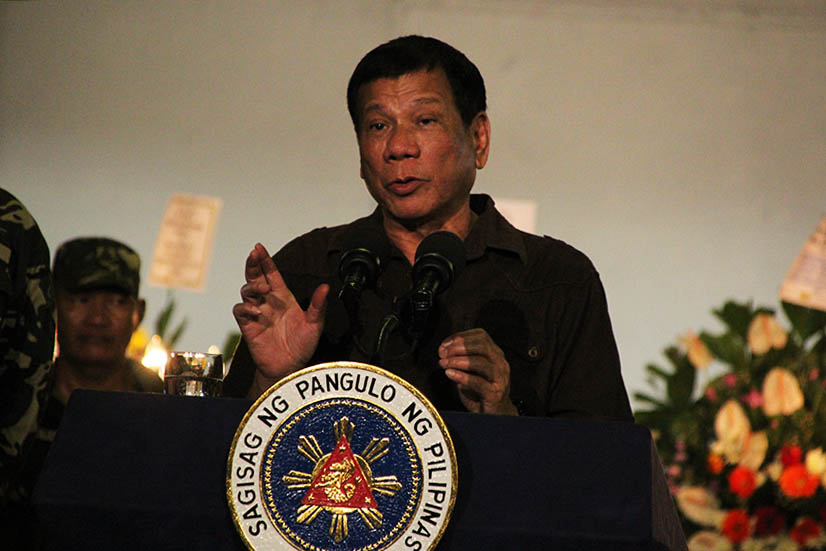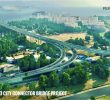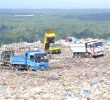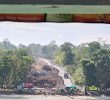
President Rodrigo Duterte (davaotoday.com file photo)
DAVAO CITY, Philippines—A climate change advocacy group scored the Duterte administration for flip-flopping on resolving crisis in the country as it will mark the global observance of Earth Day 2017 on Saturday, April 22.
Belna Cabasan, executive director of Climate Change Network for Community-based Initiatives, said the Philippines remains to be vulnerable to climate change and is worsened by “crushing proverty.”
“Government policies have also proved ineffective in mitigating climate change and its devastating effects. (Some) 11.2 million Filipinos remain jobless while 15 million people continue to go hungry,” Cabasan said in a statement on Friday.
She also criticized the government’s continued reliance to coal, saying “(T)he government continues to rely on coal as one our main energy sources while large-scale destructive mining and logging companies continue to reduce forest cover and poison our waters with impunity.”
Apart from coal, Cabasan said that in the country giant agri-corporations remain dominant in the agriculture sector which she claimed to be using “processes and methods deemed unsustainable and non-environment friendly.”
“The public transportation system is a mess while automobile companies continue to rake in millions in profits selling private cars that severely contribute to carbon gas emissions. Ever-increasing profit is pocketed by companies while the Duterte administration flipflops on resolving the climate crisis in his own backyard,” she added.
Cabasan urged the government to resolve the climate crisis as the Philippines ranked fifth in countries most affected by climate change this year, according to the Global Climate Change Index.
“We have experienced drastic changes in temperature and rainfall patterns since the year 2000. Of the ten deadliest storms ever to hit the country, five of them occurred from 2006 onwards, with Supertyphoon Yolanda, one of the strongest storms on record worldwide, claiming more than 6000 lives,” she said.
She added that in the Philippines, the impact of climate change was evident in the worse episodes of the El Niño phenomenon in 2015 and 2016. The dry spell affected almost 30 provinces and damage incurred to the agricultural sector was pegged at P4 billion.
“Climate change is real. The climate crisis is getting worse. It is something that we must face and resolve now and in the years to come or face untold hardships in the future,” Cabasan said.(davaotoday.com)









